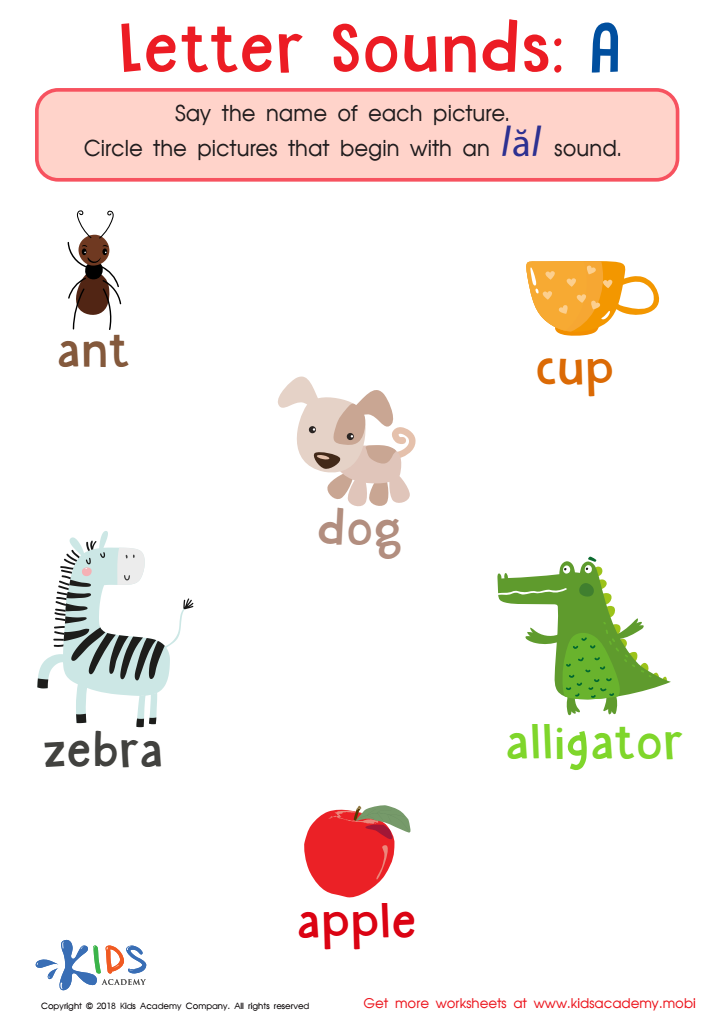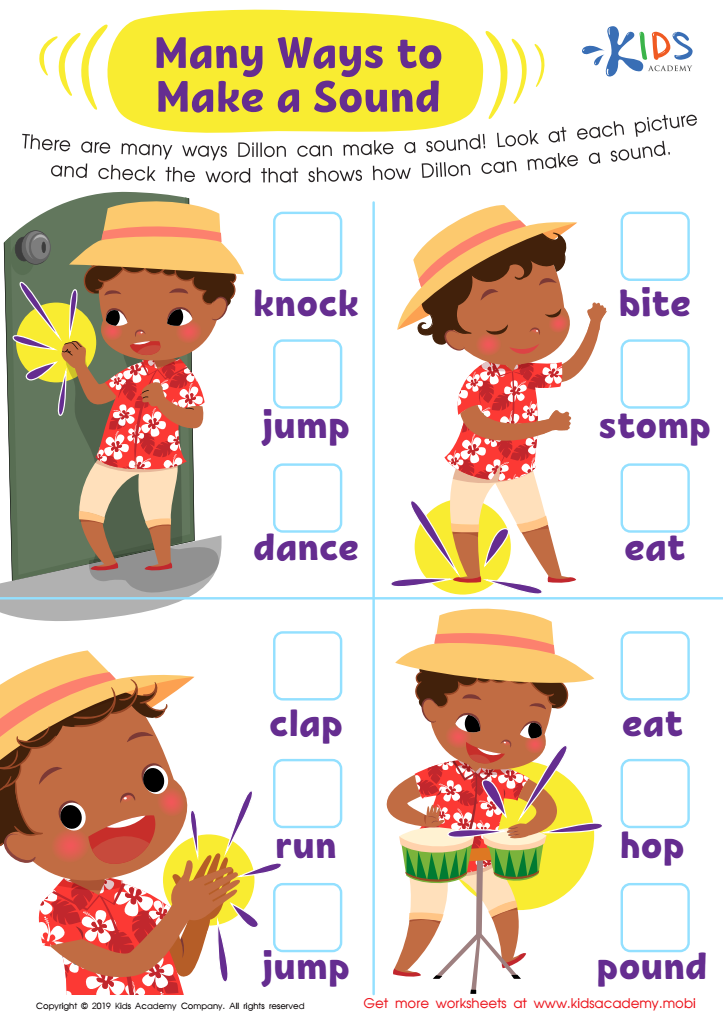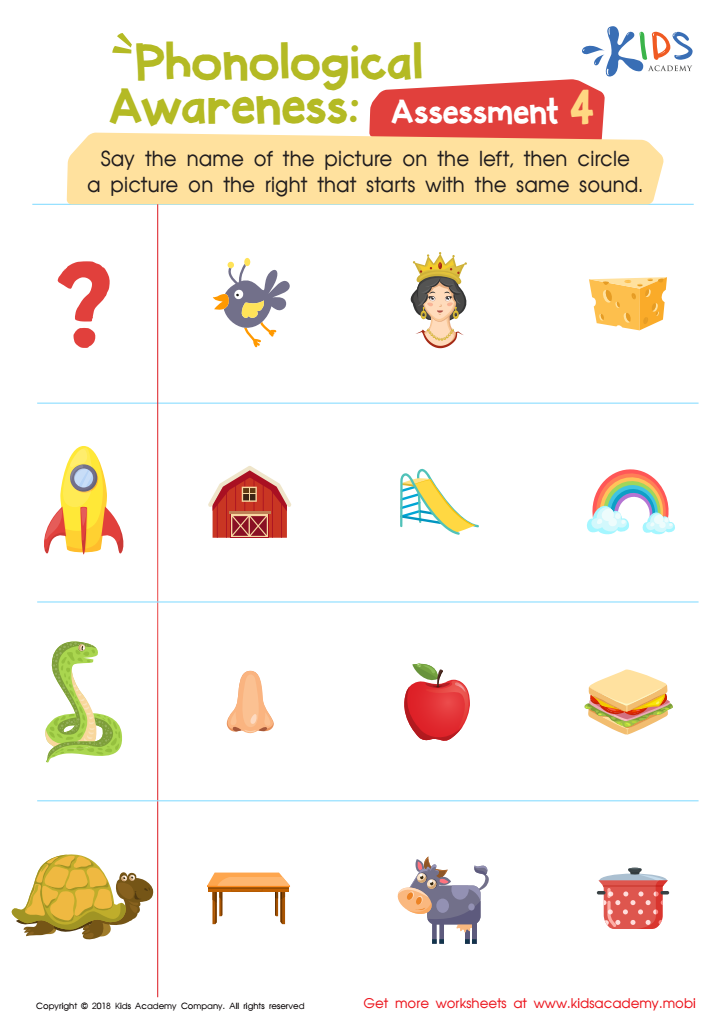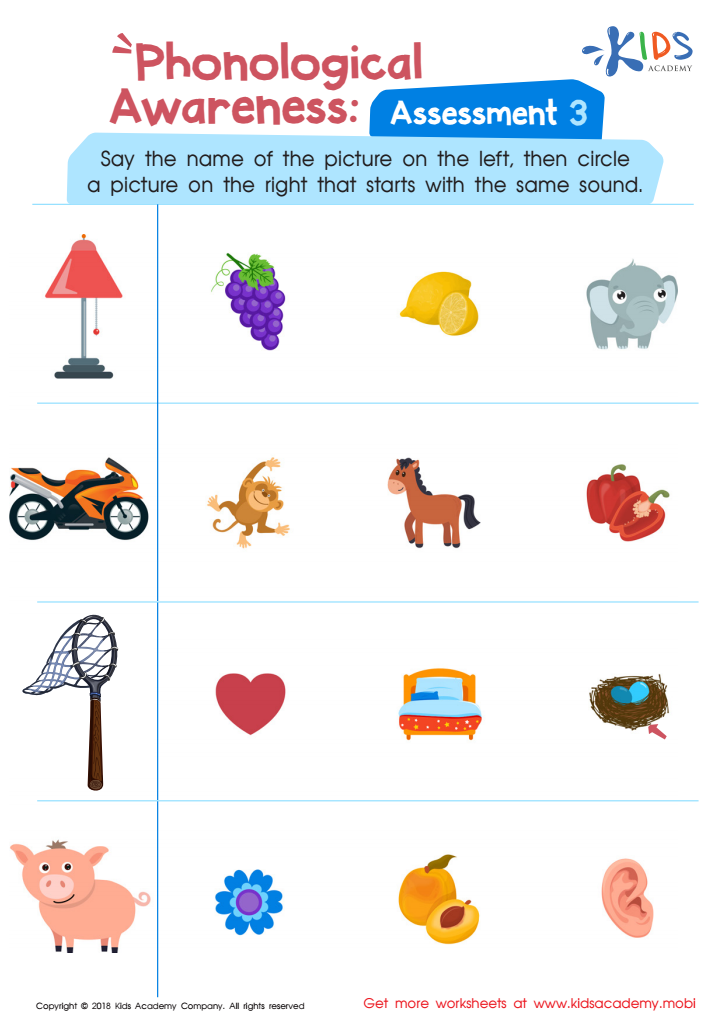Listening skills Alphabet Worksheets for 3-Year-Olds
5 filtered results
-
From - To
Boost your child's listening skills with our engaging Alphabet Worksheets designed specifically for 3-year-olds! These fun, printable activities help young learners develop crucial auditory processing abilities while exploring the fascinating world of letters. Each worksheet features colorful illustrations and interactive exercises that capture kids' attention and enhance their focus. Parents and educators can utilize these resources to create playful learning environments, encouraging children to follow directions and strengthen their comprehension skills. Perfect for at-home learning or classroom use, our Listening Skills Alphabet Worksheets lay a strong foundation for literacy and lifelong learning. Explore our collection today and make learning enjoyable!


Baa Baa Black Sheep Printable


Letter A Sounds Worksheet


Many Ways to Make a Sound Worksheet


Phonological Awareness: Assessment 4 Worksheet


Phonological Awareness: Assessment 3 Worksheet
Listening skills are foundational for a child's development and learning, particularly for 3-year-olds. At this age, children are naturally curious and spongelike learners, absorbing language and social cues from their environment. Developing strong listening skills enhances their ability to understand and process information, laying the groundwork for effective communication.
For parents and teachers, cultivating these skills is crucial. A focus on listening skills—often referred to as the "Listening Skills Alphabet"—encourages children to pay attention, follow directions, and engage meaningfully with stories and conversations. This not only boosts their comprehension but also fosters positive relationships with peers and adults.
Moreover, listening is essential for early literacy. As children listen to rhymes, stories, and instructions, they begin to grasp the sounds and rhythms of language, which directly contributes to reading readiness. Teachers can implement curated listening activities, using engaging materials to spark interest while helping children recognize letters and sounds.
In summary, enhanced listening skills are vital for a child's academic success, social success, and emotional development. Parents and teachers play an instrumental role in nurturing these abilities, ensuring that children embark on a journey of lifelong learning and effective communication.

 Assign to My Students
Assign to My Students



















